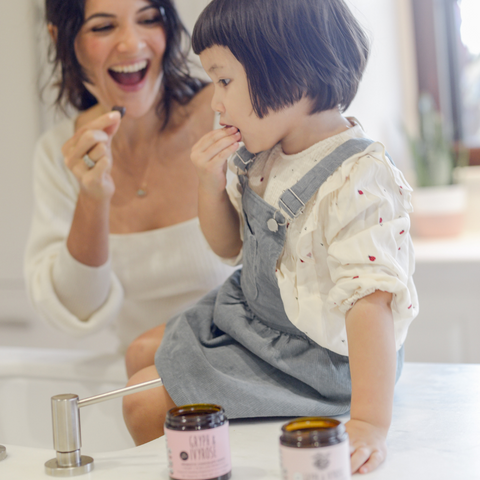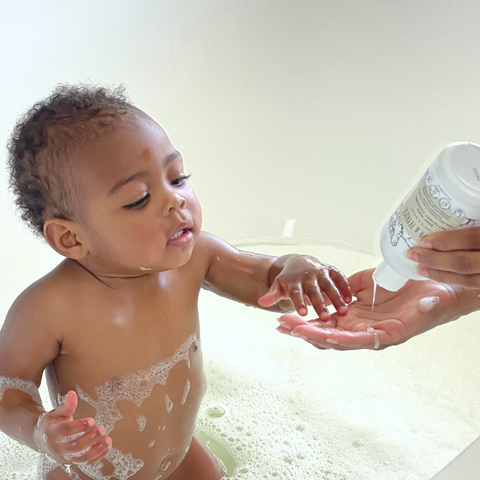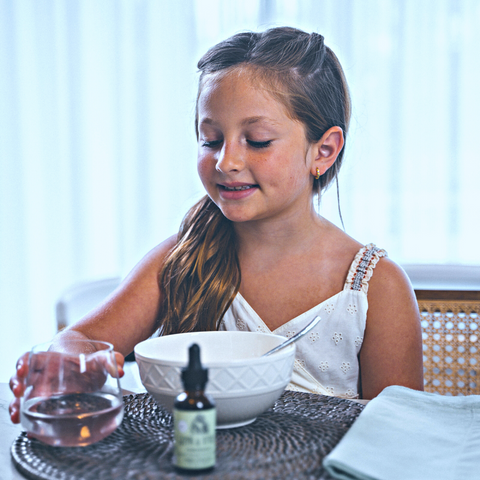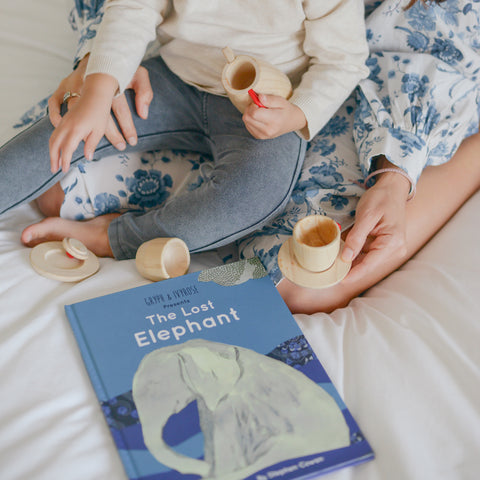An Honest Conversation with Rachel Finger and Debbie Ambrose, Drug Prevention School Counselor & Parenting Educator
Determined, hopeful, proud, impatient, exasperated, helpless - are just a few of the emotions I experience each morning, not necessarily in that order, when I attempt to homeschool and parent my 3 children during this pandemic. The landscape of personal expectations and actual accomplishments has varied immensely as the weeks go by. My friends and I have started to define our days through all-too-accurate memes. Some days we’re the DIY supermom (though infrequent), some we’re the frazzled, just try to keep it together mom and others, we’re the wine-in-the cereal mom.

Over time, I have tried to shift my focus from how overwhelmed I’m feeling, to what my kids must be feeling. None of this is ‘normal’ and while children have an enviable way of adapting to new and different situations, they are too very dependent on structure and routine. And with such a severe disruption in both, I wonder how all of this affects them both consciously and subconsciously. And I know it must as I witness the emotional highs and lows and what seems like the constant quest to test authority and rules along with the sporadic tantrums.
Deb, What are your thoughts in managing emotions and pursuing consequences in a time like this?
Your open and honest expression of the vast array of feelings is totally understandable and real during these historic times of uncertainty, disruption and unrest. There are numerous helpful and wise parenting approaches available. For the sake of brevity and time, I’ll offer some basic and practical steps that may help provide some guidance.
Managing emotions begins with a pause…taking a deep breath ( maybe several). Being present in the moment is analogous to the parent putting on the airplane oxygen first. You are now better equipped to listen with care and respect and take the next step…Acknowledging and validating feelings. It can be helpful for “parents to remember that within each child is a deep desire to be seen, heard and understood”. (Shefali Tsabary, Ph.D., The Awakened Family). The next step: Let’s talk…with the 2 ground rules: kind and respectful communication. An opportunity for everyone to practice listening to everyone’s concerns ( children go first/ validation again!), problem-solve and work together! It helps to be mindful that “practice” means repeated, on-going with some days that are rough, some good, sometimes even great! Consequences need to be carefully weighed, natural and not a punishment…sometimes a “pause break” helps calm things down and then return when bodies and minds are in a place to listen and collaborate.
My experience as a parent, school counselor and kids yoga teacher has been that children need and want structure and boundaries. How these look depend upon the family’s values and priorities. There are numerous online ideas for ways for families to enjoy time during sheltering that offer fun-filled opportunities as well as some that provide structure…which can offer moments of shared joy as well as life-learning lessons.

Not even taking into account the stress of day to day tasks that are falling by the wayside and oh yeah, the company my partners and I are still trying to run, my personal evaluation of how I’ve handled this crisis, at least in terms of parenting is pretty poor. It has not been with composure and grace. It has been with impatience and intolerance. It’s taken this long to be able to step back and look at the environment in my home and how my kids are behaving, to start to question what the real priorities are and instead of trying to create order and structure, figure out how I can make them feel safe and loved during such a time of fear and uncertainty. I have one friend who devotes her entire day into how to make the day fun for her children regardless of the cost to her daily duties. I have another who is a natural teacher and spends in depth, quality time teaching her kids.
Deb, How do you view the ladder of priorities for parents? Work, vs school, vs home upkeep, vs family bonding etc…
It’s worth repeating that a key component to developing priorities is respectful and kind communication. Another helpful guide for discerning the family’s priorities is “wisdom to know the difference”. Helping children identify what they do…and do not have control over can help provide direction and purpose. Recognizing and acknowledging feelings and moving on to what can I do today versus dwelling on feelings or suppressing them is a valuable emotional skill. For example, at this time, we can’t have the playdates that we use to have…but we can learn about children and places that have limited resources and sort out toys and clothes to donate which can instill a sense of community, empowerment and gratitude.Weekly, sometimes daily check-ins may help decide if this is a day to follow a planned schedule, or pause, and focus on what’s happening now… and then make choices based on your awareness of the needs and priorities on that day. This can feel more like liberation than surrender.
Especially at this time, children need reassurance that their parents are here to love and take care of them…and they will be ok, and we will all be ok.

That surrender from assuming that all normal schedules and tasks can be accomplished to setting small goals each day and being incredibly flexible in how they play out, has taken an immense pressure off of me and in turn, my kids. For example, we’re back to basics as far as tasks: getting dressed and brushing our teeth without my asking is a huge accomplishment. Some days, we get through school work without a hitch, play together, I get work done and maybe even a workout in. Others, I throw my hands up, let go of the day, focus on what I can get done for work and try again the next day.
Deb, How do you separate surrender vs failure as a parent?
Your interest in these topics, and the sharing of your concerns about the well-being of your children indicates your heartfelt desire to raise children that feel loved and cared for…welcome to the club of imperfect parents trying their best to raise compassionate, healthy children who can engage with life as they experience joy as well as face challenges. Parents can influence the well-being of their children by creating conditions that foster acceptance of who their children are…and connecting with them during their struggles and successes.
The practice (and modeling) of self-care and self-compassion are very difficult in our competitive, fast-paced, perfectionist culture… but they are gifts that can help us in the on-going parenting journey that offers us opportunities to live consciously, and to create authentic, joyful relationships with our children.

-Rachel Finger, Co-Founder

Deb Ambrose
Retired School Counselor, Health and Parent Educator. Life-long learner of love, kindness, friendship, meditation and yoga. Kids Yoga Teacher.
Lives in Upstate New York with husband, Roger, 2 Adult children and 5 grandchildren, and our cat, Emma.




















